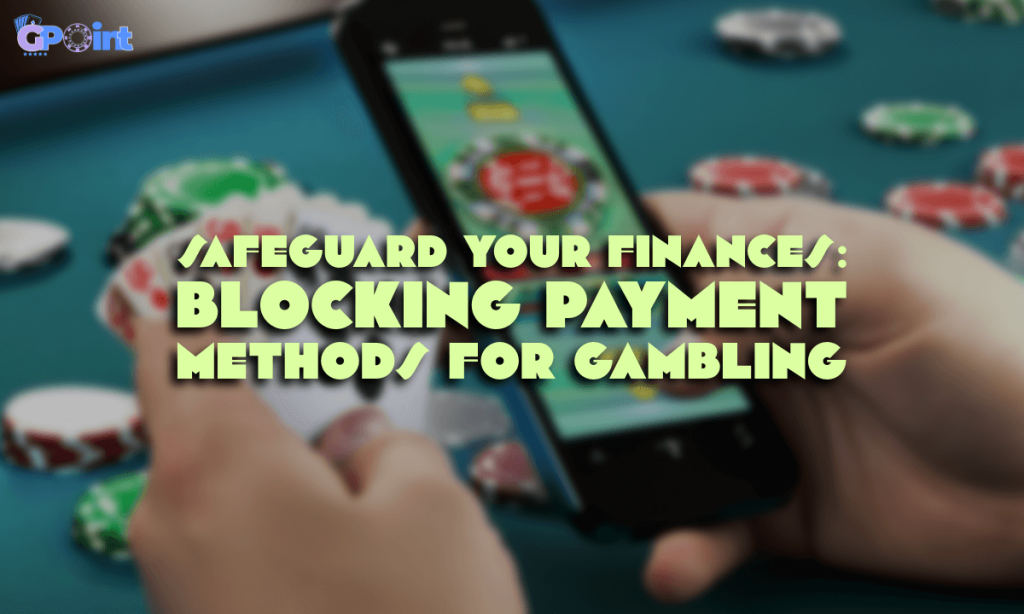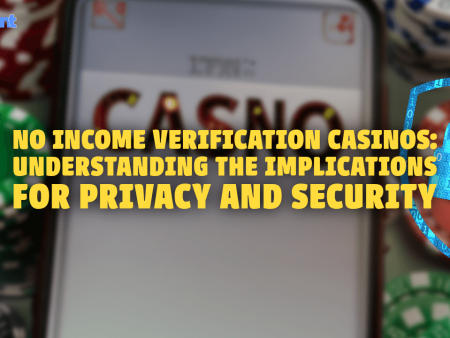Gambling can be a recreational activity for many, but it also has the potential to become a serious problem for some. If you're looking to take control of your gambling habits or prevent them from escalating, one of the most effective actions you can take is to block your payment methods from being used for gambling transactions. This article provides clear, practical steps for individuals looking to protect their finances from the risks of gambling.

Best Casino Sites With Many Payment Methods
▶ Disclaimer
We maintain an affiliate partnership with this casino. Our earnings are generated when players visit the casino's website, register an account, and make deposits. It's important to note that this arrangement does not impact the review or rating of the casino
🦺 Secure 🤨 Trusted ✅ Verified 🇬🇧 Accepted
Last Updated: 7 June 2025
Non Gamstop Sites
- Generous bonuses and promotions
- Wide variety of currencies and payment methods
- Broad range of games and software providers
Non UK Casinos
- Higher withdrawal limits
- Tailored VIP programs
- Operate under international licenses
Crypto Casinos
- Instant deposits and withdrawals
- Secure blockchain technology
- Access to new and unique games
Bookmakers not on gamstop
- Wide range of sports and markets
- Exclusive betting promotions
- Enhanced privacy for players
Why Block Gambling Transactions?
Preventing access to funds for gambling can help reduce the temptation to gamble and is a critical step for those recovering from gambling addiction. It is also a part of responsible gambling practices, ensuring that spending does not become problematic.
How to Block Your Payment Methods from Gambling Sites?
Below are some strategies to help you block your payment methods from being used for gambling.
Talk to Your Bank or Credit Card Issuer
Activate Gambling Blocks: Contact your bank or credit card issuer to inquire about gambling block services. Many institutions now enable customers to block transactions to gambling sites and apps.
Set Transaction Limits: Request to have daily or transactional spending limits set up on your accounts, reducing the amount of money that can be spent on gambling.
Embrace Technology Solutions
Install Blocking Software: Use software like Gamban or BetFilter to block access to gambling sites on your computer and mobile devices.
Leverage Banking Apps: Modern banking apps often come with built-in tools to block certain types of transactions, including those categorized under gambling.
Employ Self-Exclusion Programs
National Self-Exclusion: Register with national self-exclusion programs like GamStop (in the UK) to exclude yourself from all gambling platforms.
Manual Self-Exclusion: Contact individual gambling sites to request exclusion from their services.
Use Alternative Payment Methods
Prepaid Cards: Use prepaid cards with set limits for your transactions, as these are often not accepted by gambling sites.
E-Wallets with Restrictions: Choose e-wallets that allow you to set restrictions on the types of merchants where transactions can occur.
Modify Your Spending Habits
Cash-Only Policy: Adopt a cash-only policy for discretionary spending to avoid the ease of online transactions associated with gambling.
Accountability Partners: Share your commitment with a trusted friend or family member who can help keep your spending on track.
Seek Professional Advice
Financial Counseling: If gambling has impacted your financial health, consider seeking the support of a financial counselor.
Legal Aid: In cases of debt, a legal advisor can guide you through the options to manage and potentially consolidate your debts.
Conclusion
Taking proactive steps to block payment methods for gambling can be a significant deterrent against compulsive gambling behavior. It's about creating a safety net that helps maintain financial stability and supports a commitment to responsible gambling or abstinence.
Remember, the goal of these actions is to provide a structured approach to managing your finances, giving you greater peace of mind and the ability to focus on other important aspects of your life. Also read our article about GamProtect.































